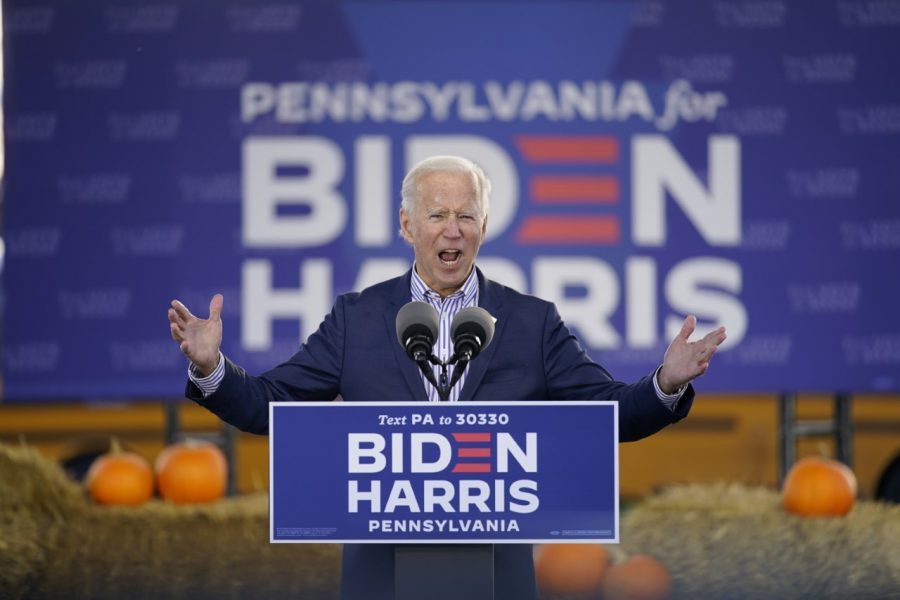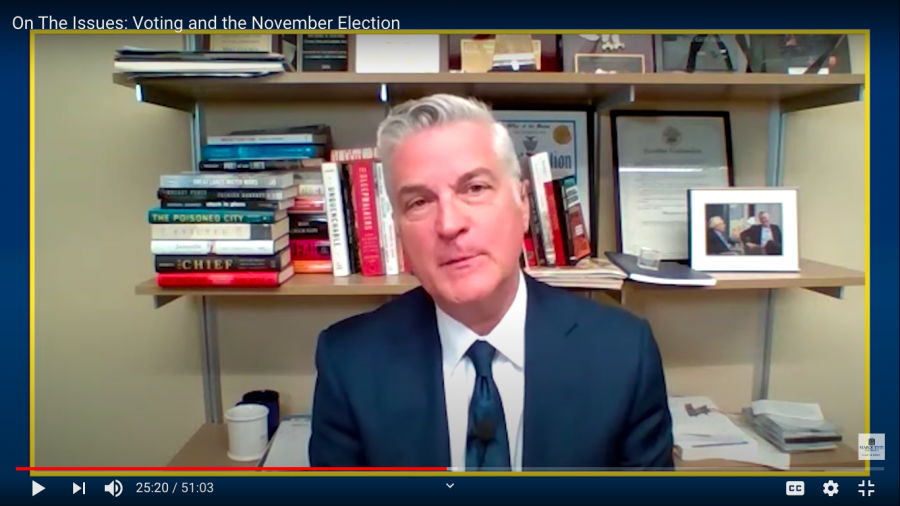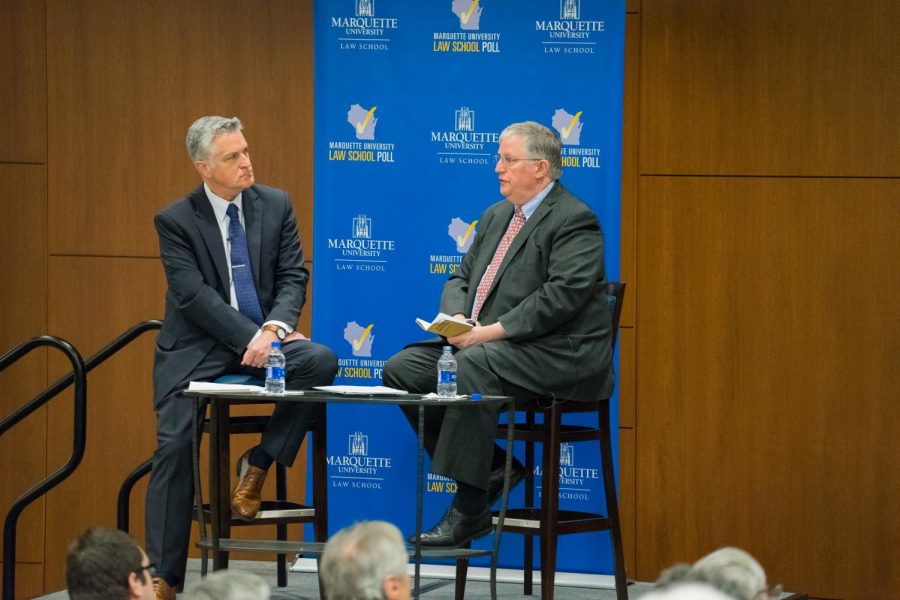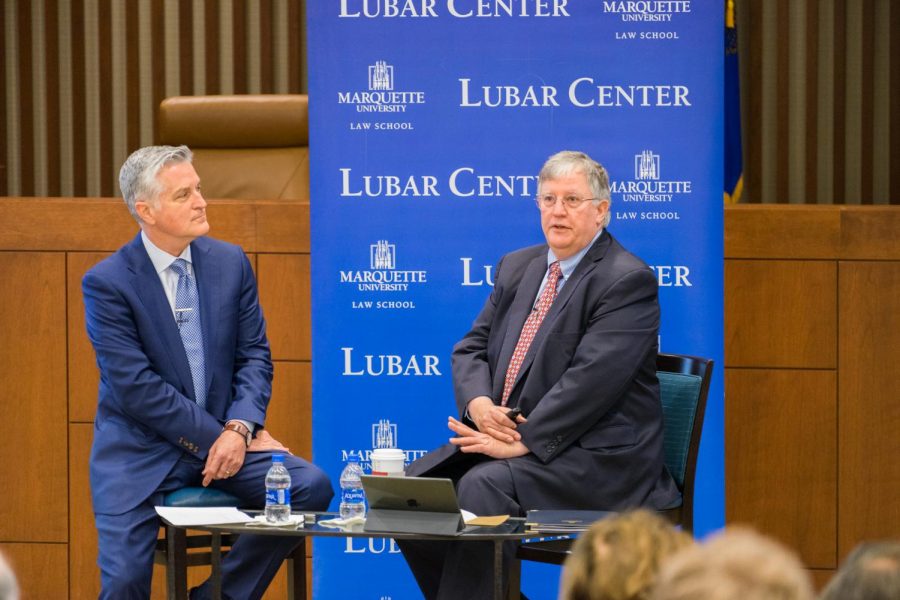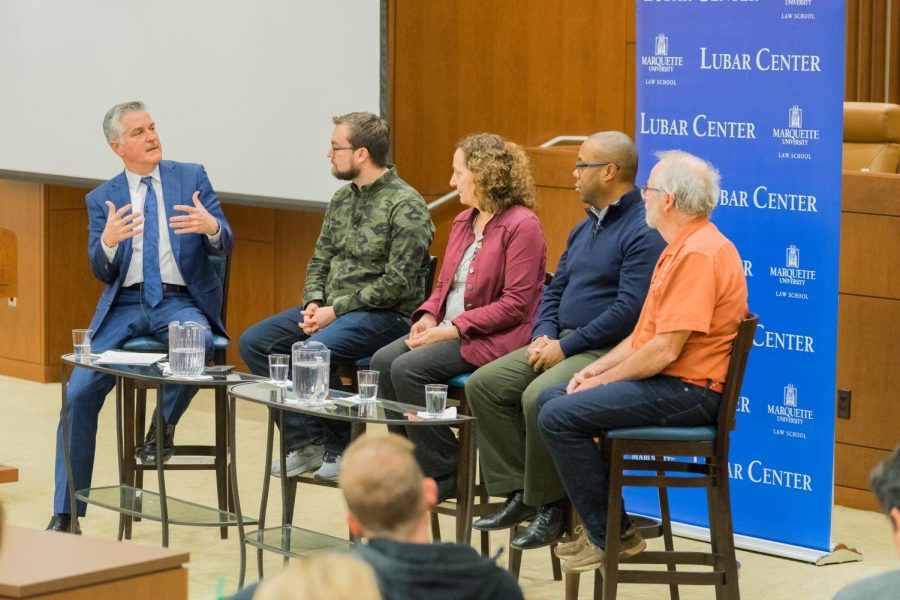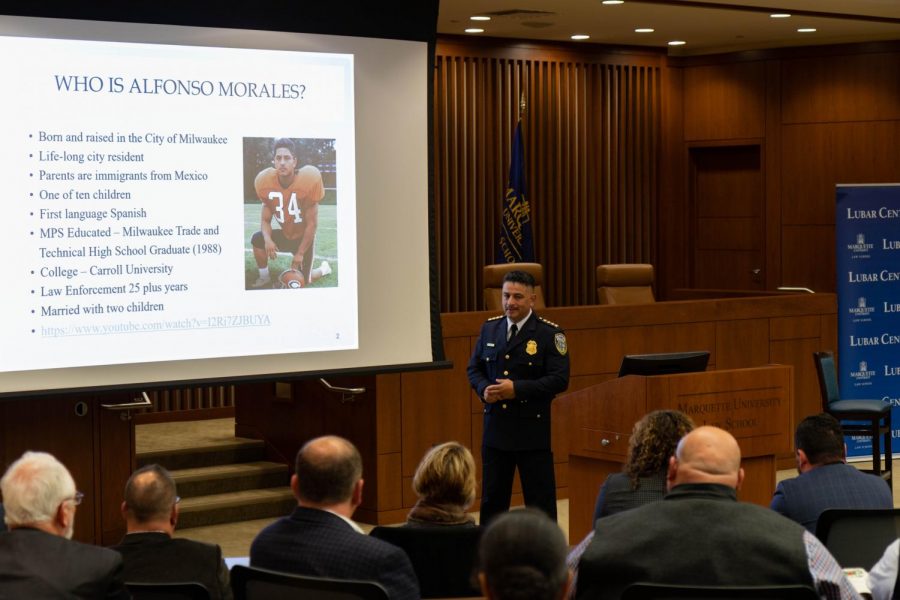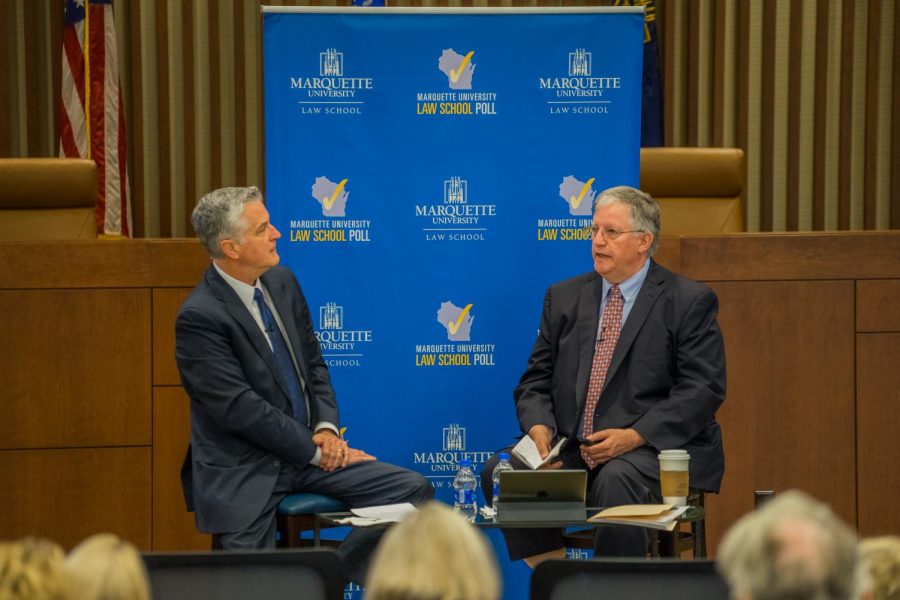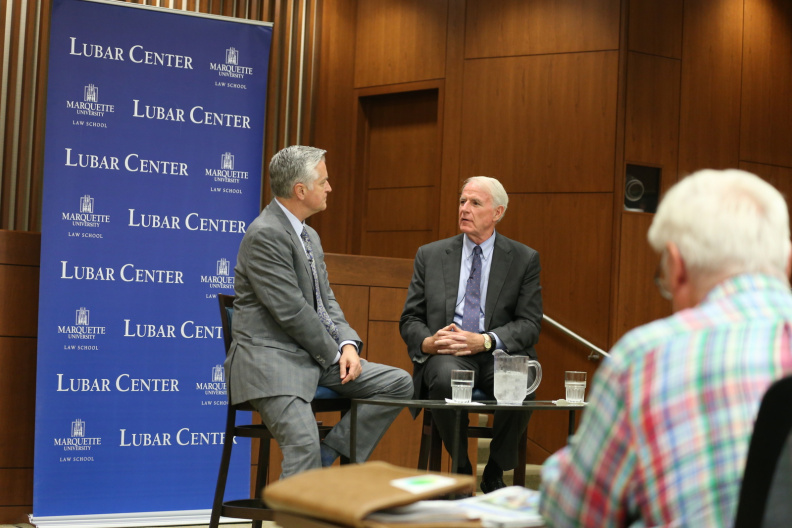On the heels of the third and final presidential debate Monday night, U.S. senator Ron Johnson (R-Wis.) discussed the economic issues that affect voters at the “On the Issues” talk with Mike Gousha at Eckstein Hall Tuesday.
Most of Johnson’s talk was centered on the importance of the federal budget. Johnson gave statistics concerning federal government growth, the deficit and tax cuts, concluding that “when you increase taxes on wealthier individuals, you increase taxes on small business.”
Johnson also discussed the final debate between President Barack Obama and former Massachusetts Gov. Mitt Romney, in which the candidates debated foreign policy. While he agreed that both candidates were strong in the debate, he contended that Romney was the frontrunner.
“Obviously, I think Mitt Romney did very well,” Johnson said. “I am comforted, though, that Obama has adopted so many of Bush’s policies.”
Johnson added that while the third debate reflected strongly on both candidates in general, it was the the most crucial debate because it “shattered the myth of Romney not being a capable leader.”
Many in the audience disagreed with Johnson’s analysis of the most recent debate. Tensions escalated to the point of shouting when one woman criticized Johnson’s views during the question and answer portion of the event. The woman disagreed with a point Johnson made about welfare and the unintended consequences of the system.
Alex Rydin, a junior in the College of Communication, enjoyed the heated discussion but said it not will bode well for Johnson in the future.
“I don’t think it is smart of politicians to fight with their constituents,” Rydin said. “If (Johnson) decides to run again, that could definitely be brought up because he got into an argument.”
Despite the tense atmosphere, Johnson emphasized that America should lead by example, a point on which many Republicans and Democrats agree.
“When we are weak and withdraw, the world becomes dangerous,” Johnson said.
Ginny Spellman, a sophomore in the College of Communication, was not sure if she agreed with Johnson’s points on American military withdrawal from Afghanistan and felt that Johnson did not provide enough information on the topic to support his conclusion.
“I wish he would have told us more about why withdrawal would be harmful to the country, because not (withdrawing) because it makes you ‘look weak’ is a poor excuse,” Spellman said. “The country should not operate based on what other countries think of us. We need to act in our best interests first before acting in theirs. I don’t know that Johnson really supported his particular argument with anything concrete.”
Johnson made a point to highlight the importance of working across party lines and forging bipartisanship in Congress in order to get things done.
“The stakes are extremely high in this election, and people on both sides of the aisle are realizing that,” Johnson said. “I will work with anyone.”
Johnson’s appearance at Marquette follows former Senator Russ Feingold’s (D-Wis.) appearance in an “On the Issues” event earlier this month.


